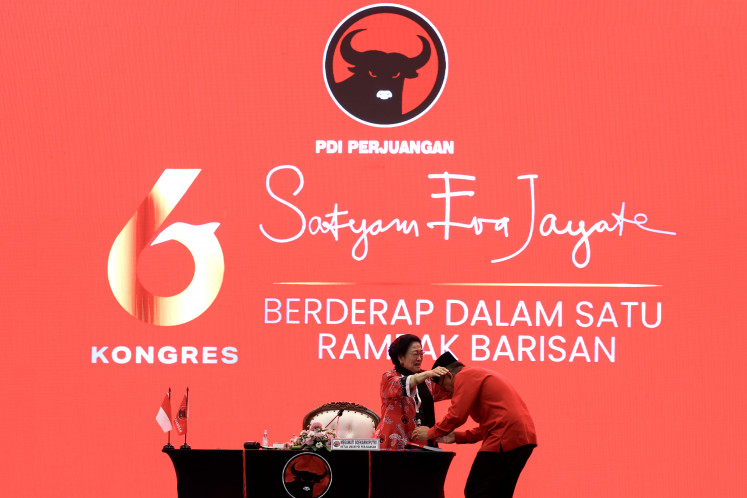Popular Reads
Top Results
Can't find what you're looking for?
View all search resultsPopular Reads
Top Results
Can't find what you're looking for?
View all search resultsRI should look to Korea on govt-labor relations
Indonesia should learn from the success story of the Republic of Korea in balancing relations between the government and labor unions, expert says
Change text size
Gift Premium Articles
to Anyone
I
ndonesia should learn from the success story of the Republic of Korea in balancing relations between the government and labor unions, expert says.
University of Indonesia economist Prijono Tjiptoherijanto said recently during a conference on the Korean Model of Development in Jakarta that South Korea’s labor unions could use the booming economic momentum to strengthen their bargaining position.
“Korea is not the only country to reach successful economic development, but it is among a few countries that have managed a relatively steady relationship between the government and labor unions,” he said.
South Korean labor unions achieved a prominent position after the country experienced robust economic growth in the late 1980s. The growth followed an increase in the number of middle-class community members who were represented by labor unions. “The workforce was in a higher position, so it could force the government to accept it as one of the state’s important pillars,” he said.
“Labor unions could pressure the government in the decision-making process. This is something we don’t see in Indonesia. Our workforce does not have the influence to affect government policy and is too weak to be considered one of the state’s pillars,” he said.
Strong labor unions in South Korea, he said, was a result of the country’s far-reaching goal and economic development plan. “The government is consistent about what the previous regime planned many years ago. In every country’s economic success story, there must be strong commitment to and consistency in the nation’s long-term plan,” he added.
Prijono said that consistency was the biggest problem of Indonesia in following South Korea’s success story. “Each regime plays by its own rules with no continuity of the previous regime’s good projects. If we keep doing this, we will be in the middle income trap for many years ahead,” he said.
Prijono compared Indonesia and neighboring Malaysia. “Even Malaysia is highly consistent and is committed to the economic plan set by Mahathir Mohamad decades ago,” he said.
Prof. Seonil Cho of Sunchon National University said South Korean labor unions did not earn a strategic position in a short time.
“There were at least three phases. The first phase was the authoritarian regime that did not give much chance for the labor community to speak. The second phase was when the economy grew and created a stronger workforce. The third phase was when the state and the labor community reached a balanced relationship,” he said.
Cho said that South Korea’s political, economic and social life were currently under the control of three entities: the government, labor unions and companies.
“The dynamics between the three actors and the ensuing choice of policy direction determines the quality of policy content,” he said.
The University of Asia and the Pacific’s Bernardo M. Villegas added that Korea’s focus on rural agricultural development and its domestic market had shaped Korea’s economic policy.
South Korea, he said, was the first First World country to escape the middle income trap.
He said that ASEAN countries, rather than Indonesia alone, could learn several lessons from South Korea. (lfr)










